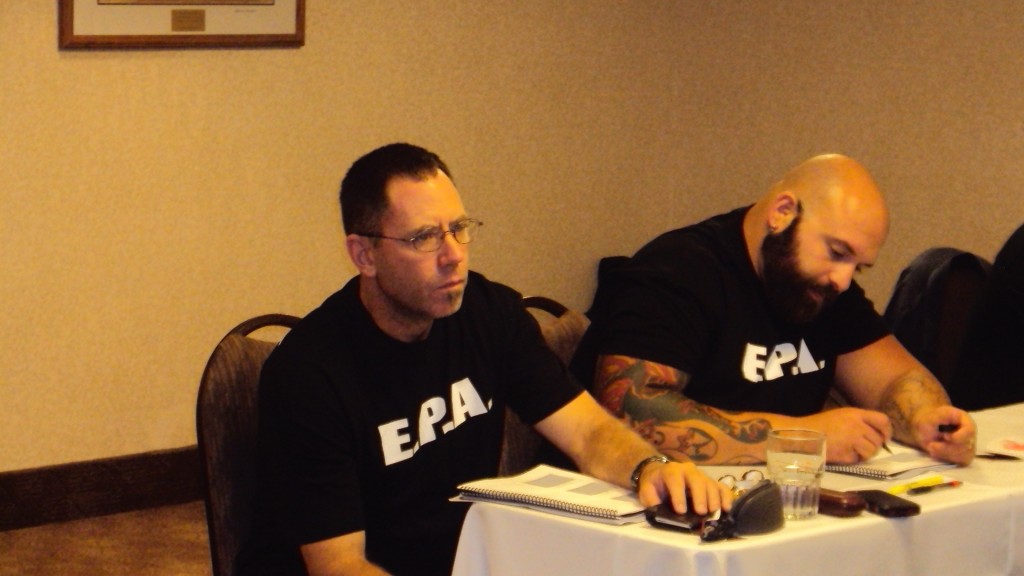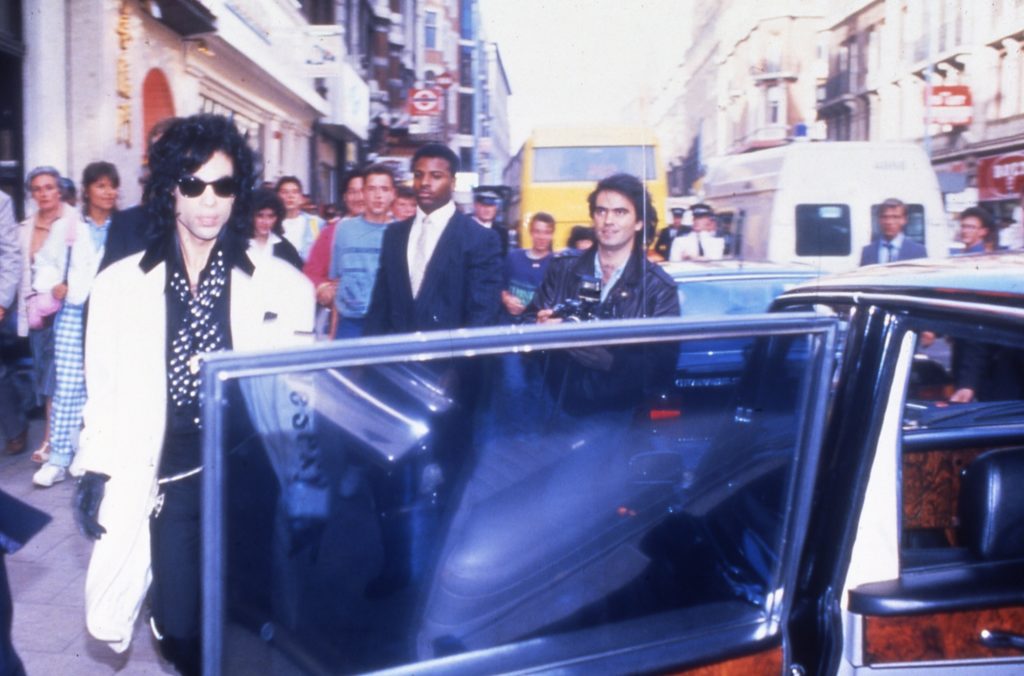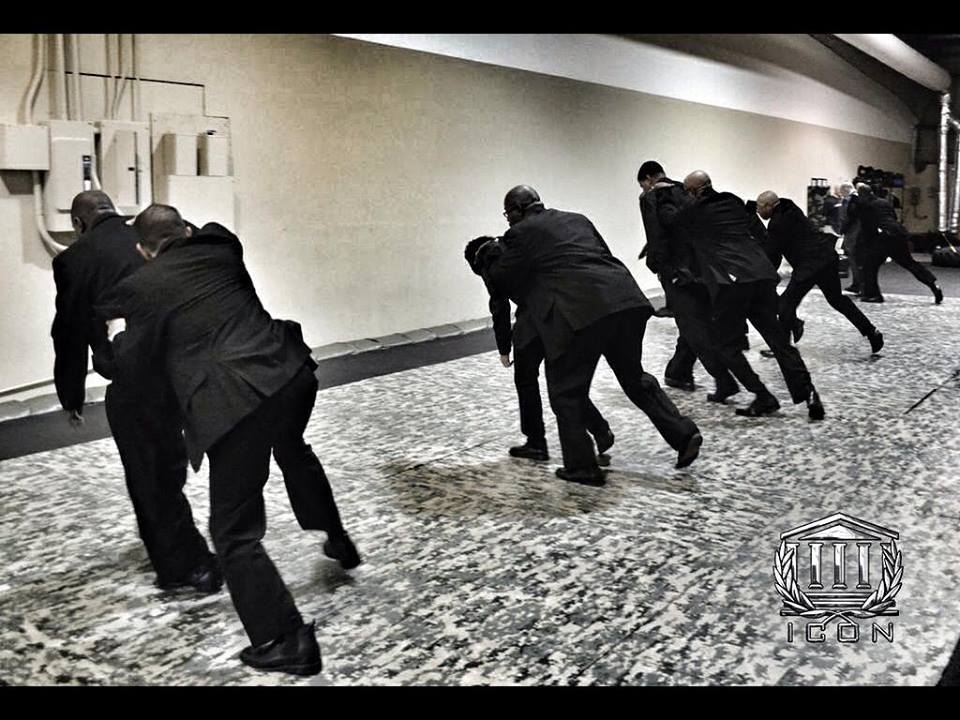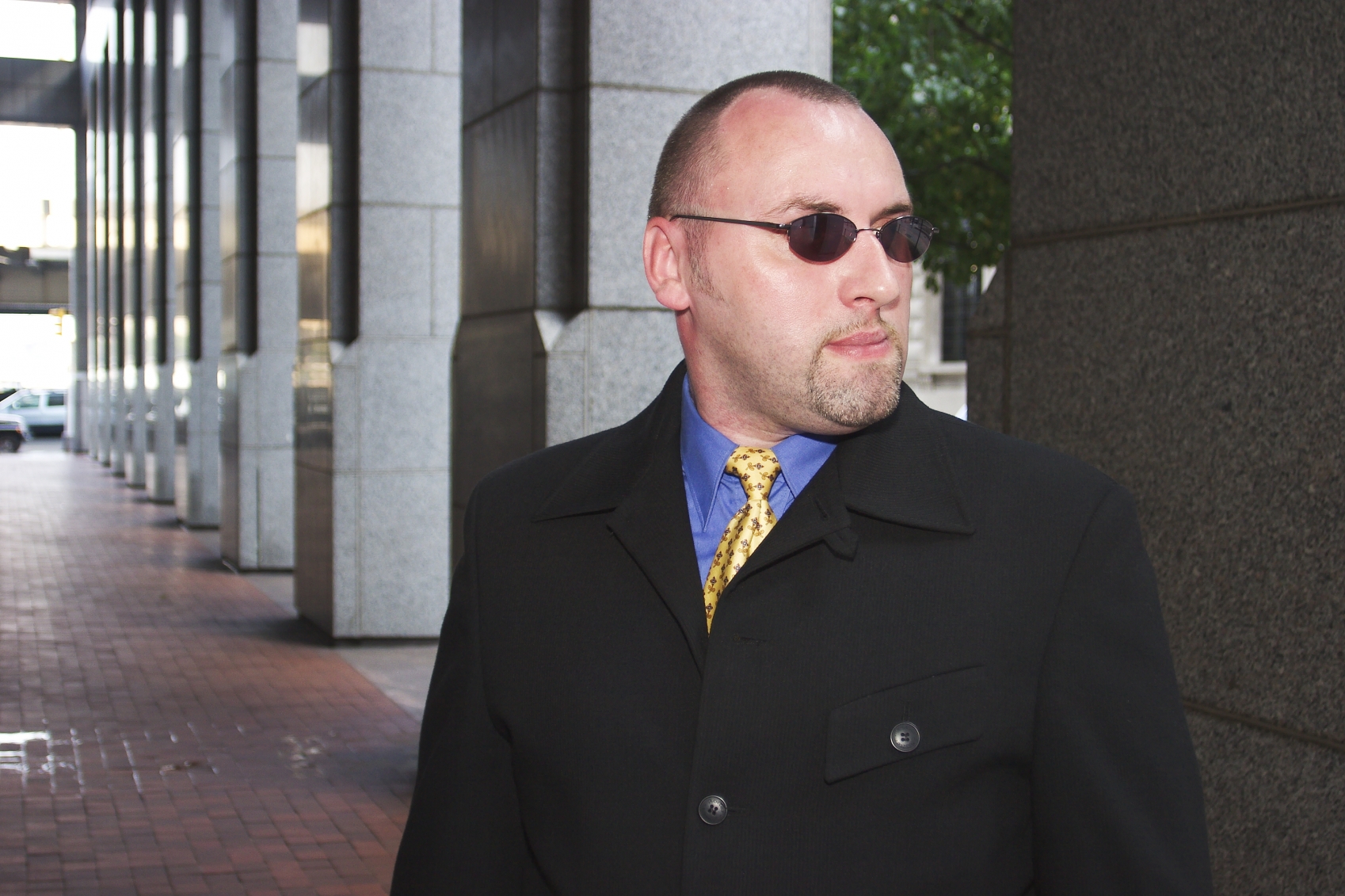The Truth About Executive Protection Schools

What you should know about executive protection schools. Several years ago I was on a layover at Midway Airport when I noticed a professionally dressed woman looking in my direction wearing an expression that I quickly recognized as one of familiarity.
You know the look that someone gives you right before the index finger begins to wag and that age-old line rolls off the tongue, “Hey, don’t I know you from someplace?”
The interesting thing was that she wasn’t so much looking at me as she was looking at my black portfolio with the bright red embossed emblem which read, “SPI” for, Southern Police Institute.
That black portfolio and the Kentucky Colonel plaque that hangs in my office are the membership cards that tie me into an elite group of law enforcement professionals with whom I share a common experience and a common set of credentials.
In law enforcement circles there are only a few command schools that really matter, The FBI Academy, Northwestern Command School, and the Southern Police Institute. If you have attended one of those three schools you have met the first several key requirements for any command level police chief job you might be pursuing.
Essential Ingredients When Selecting Executive Protection Training
Much talk has been made of two essential ingredients for success in the professional world these days. The two new buzzwords are “Branding” and “Networking.” If you want to get the job or the contract its all about your brand and your network, few other things matter as much.
As it is in the world of law enforcement, there are certain executive protection schools that will set you apart from the competition and effectively “Brand” you as a serious contender for desirable work and that will expand your “Network” so that you are not alone in marketing yourself.
At the conclusion of this article, we will show you how to make an informed decision about which executive protection school you will attend. But first, let us talk a little bit about what’s out there and how to avoid some of the predatory marketing practices of schools that will leave you broke, ignorant, and empty-handed, when its time to produce some credentials.
If you want to be certified in CPR go take a Red Cross course and they will certify you. If you want to be certified to teach a firearms course the NRA can fix you up. But if you want to be a certified executive protection specialist there is no such certification available.
Training schools can give you a certification that says you passed their course, but that certification is not universally recognized as a qualifier to perform EP services. Any executive protection school that promises they will certify you as an EP specialist without carefully explaining that their certificate does not meet any legal standard for qualification is trying to take advantage of you.
Because there is no legal requirement of certification for EP services, there is no true need for any executive protection school to offer certification other than as a document to indicate you passed their course.

Make Sure you look at Reputable Executive Protection Schools
However, it is important to note that some reputable executive protection schools are accredited by the state which they operate, and many training courses will teach you legal requirements for use of force and use of firearms.
You also want to be on the lookout for schools that promise you work upon completion of their executive protection course. Let’s face it, the job market is tough out there and getting EP work is just as competitive as ever.
Attending a reputable executive protection school can open doors for you but no one can promise you work just because you completed their course. A good and reputable school like the (Executive Protection Institute) will tell you this up front.
Most potential business executives will want to know that you have been trained in the executive protection field. Anyone who is not interested in knowing whether or not you have been trained is probably only looking for a couple of knuckle-dragging goons to knock people aside or to look impressive.
There is a substantial amount of liability involved in hiring untrained ep agents.
Some celebrities have paid out large sums of money for having friends or relatives serve as protection only to have them respond inappropriately in a critical situation and cause harm to citizens. A well-trained bodyguard is well worth their wages and will protect the client physically and religiously.
When you are looking for a reputable executive protection school look for one that is run by security professionals who themselves have stellar credentials and years of experience in the executive protection industry. There are several important factors to consider when selecting an executive protection school:
• Location
• Price
• Coursework
• Reputation
LOCATION: Fortunately, some reputable executive protection schools now offer online courses. This is important because often traveling to another state to receive security training can become cost prohibitive.
However, if possible it is best to attend a local executive protection school because more than likely your first jobs will not be long-term protective detail assignments traveling the world with a Rock Star or Rapper, living in hotels!

You will likely find yourself on short-term personal security assignments working a small venue for a political client for one night or working as a stand-in for someone who is unavailable for an executive that needs to get safely to the airport.
A security company may want to hire you to do access control at the building entrance of a major corporation at first, or you may be asked to volunteer with a small team to protect the family of a CEO at a fundraising event.
Earlier I mentioned the importance of networking. Attending a local school where you are face to face with other executive protection agents and the instructors affords one the optimal opportunity to network.
If you take an online course you miss the opportunity to interact personally with other security personnel.
PRICE: Do your homework. Compare prices of different executive protection training programs. Determine how many hours of training you will receive for the fees you are expected to pay.
Don’t fall for those ads that promise you a new career for $1500 and 30 hours of coursework. The promise of executive protection jobs completion of this course is an outright lie.
One “executive protection training course” tells people they will be a “certified executive protection specialist” upon completion of the program. When you see ads like this ask to speak to alumni of these programs. Review the refund policy. Visit other websites and read blogs or boards to read what working professionals in the business have to say.
COURSEWORK: Again, compare the coursework of the various close protection training schools. 15 hours of coursework does NOT train you to be an executive protection professional. It takes months of hard work and study to become a police officer and even more hard work, study, and years of experience to become a police executive. The same can be said for becoming a firefighter, an EMT, a paramedic.
Military service personnel and other professionals also go through a comprehensive program training before taking an active role in their field. Even these protective services professionals with all their training and extensive experience will find it difficult to obtain work in executive protection services.
A handful of classes with Acme Bodyguards School will not make you a “Certified” protective operations professional. The fact is that if it sounds too good to believe it probably is too good to believe.
REPUTATION: Word of Mouth in this line of business is important. While it’s true that not every individual is going to be happy 100% of the time with even the best bodyguard training programs, the positive comments will outnumber the negative comments made by the public.
You need to look at the big picture. Contact the Better Business Bureau prior to investing any money in an EPS training program. Consider contacting the schools personally via telephone and ask questions. Ask to read bios of the instructors and complete course descriptions. Read about people who have had careers you admire and learn where they trained.
At the beginning of this article, I mentioned meeting a person at Midway Airport. A uniform, a certain tattoo, or even a black portfolio can gain you recognition and identify you as one of the clubs. The right executive protection school can open doors for you as well, but you have to be realistic in your expectations.
My black portfolio and the school it represents got me noticed and it gave me a platform for speaking to a stranger who had nothing more in common with me than the school we both attended. However, it is my own experience, personality, and winsome nature that kept the door of opportunity open.
Years later, I brought that same portfolio to a job interview. The man interviewing me was an FBI graduate. He took one look at that portfolio, smiled, and asked me a few serious questions before the interview turned into a casual conversation about the two different command schools we attended.
Look carefully at the executive protection schools we recommend and understand that when you walk into that interview or you make your pitch to a corporate security job, you may be taking the reputation of that school into the interview with you, so choose carefully.
Related Posts:
- 13 Things Needed to Help You Become a Personal Bodyguard
- Tony Scotti Shares Knowledge About Security Driving
- Winning Tactics About Executive Protection From Jerry Heying
- Why Executive Protection Training is Necessary
About Harlan Austin
Harlan Austin is the founder and editor of Bodyguard Careers. If you need help getting started in Executive Protection, Click on this link.

I look forward to sharing in your success–I know you will find, as I have, that you are on a career path that is both interesting and profitable.
Sincerely Harlan Austin








